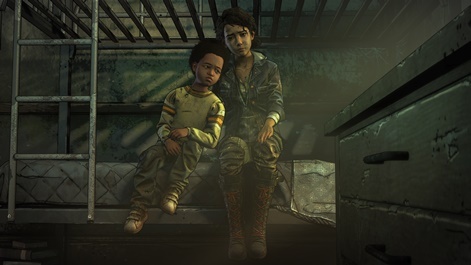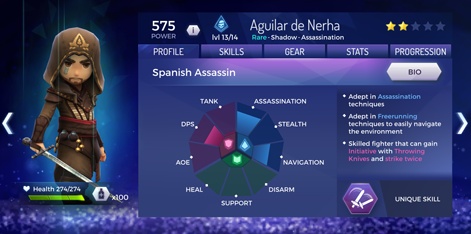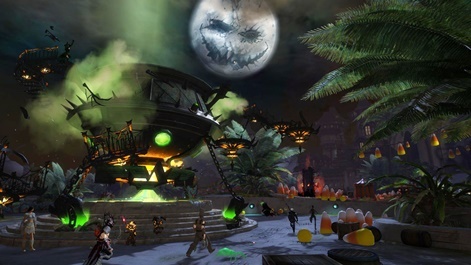With the end of the year swiftly approaching, 2018 may feel like a Pyrrhic victory for games developers.
The realities and hardships of working in the industry are more visible to the public eye than ever, but it has come at the expense of a lot of people's personal wellbeing.
A report into Riot Games exposed a toxic working culture that still festers within the industry, while public episodes at Telltale and Rockstar proved to be a reminder that crunch is still an issue the industry is finding difficult to tackle.
On top of that, the public abuse of games developers on social media continues, as seen with ArenaNet’s dismissal of two of its employees.
Still not letting up, a number of studios have faced closure and left many without a job, from Telltale and Capcom Vancouver to Bandai Namco Vancouver and Wargaming Seattle. It's not all bad of course, other companies are continuing to hire while new studios open all the time - though that might be little consolation to those who have lost their jobs.
Little high, little low
Though these events have dominated public discourse, however, IGDA executive director Jen MacLean (pictured) is keen to strike the balance between advocating for change while acknowledging the good that's already going on in the industry.
Speaking to PocketGamer.Biz during a brief lull at the Games Connect Asia Pacific conference in Melbourne, MacLean reflects on what has proven to be a trying year for the industry.

“I’ve been giving a talk at a few conferences recently and the theme is that it’s the best of times, it’s the worst of times,” says MacLean.
“I think that very much describes what’s like to be a games developer right now.
“In many ways, there are a lot more opportunities. There are tools like Unity and Unreal and distribution opportunities; these are all fantastic things for the industry.
“But, it’s never been more difficult to succeed as a games developer. We also know that the games industry is cyclical and I suspect that some of the things that we see with studio closures are only the beginning.
"Because you can look at the development cost for games, and the revenue produced, and the math is starting not to work. What that means is that we’re going to have to radically change how we develop games or monetise them, or both.
"That’s going to mean a lot of disruption in the industry and it’s going to be a hard time for games developers.
"At the same time, we’re having more open and honest discussions than we have ever had in the industry and I think those discussions are important to making meaningful change.”
We’re having more open and honest discussions than we have ever had in the industry and I think those discussions are so important to making meaningful change.Jen MacLean
Community watch
Another topical issue MacLean is keen to draw attention to is the relationship between consumer and developer, with Ubisoft’s enforcement of more strict community standards a stand-out example that she hopes others will follow.
“When we look at how games developers are treated by games communities, they act on social media as they do in games,” MacLean states.
“When we tell them and show them that it’s okay to use racial and gender-based slurs in games, that it’s okay to make threats in games and that it’s okay to harass people in games, we can’t be surprised when they do that outside of games to developers.
"Seeing a company like Ubisoft be very upfront with the type of behaviour they will no longer tolerate actually bodes very well as more companies adopt that.
"I’m excited to see a company realise that it’s more important to have a better player experience and to ban people for creating an unwelcoming and unsafe player environment because I think that’ll have positive implications for games developers.”

While not every company has come in for favourable press throughout the year, with plenty grabbing headlines for less than savoury reasons, MacLean downplays the idea that the year should be marked by their misdeeds. Instead, she notes that it's a positive that social media has made us more aware of what goes on.
“I’ve been in the industry for 26 years, so I’ve seen both good and bad behaviour from companies,” says MacLean.
“I think the difference is now we talk a lot more about it through tools like social media and also through a more connected games community.
“I think that’s a positive. But I wouldn’t go as far as to call this the year of the bad employer, as we’ve seen some of this behaviour in the past. We’re just more aware of it.”
Come together
In a bid to help games developers adapt to the current climate within the industry, however, MacLean believes the IGDA needs to help them understand what’s going on outside of their contributions to making a game.
I’ve been in the industry for 26 years, so I’ve seen both good and bad behaviour from companies.Jen MacLean
One example is social media. The IGDA has previously posted a series of questions for people to ask their employer to ensure they are on common ground in regards to acceptable behaviour online. The IGDA has also posted its own social media guidelines for any developer to use a reference point should they have none.
Another is the need to be an effective ally for your fellow industry-folk. As such, while at GCAP, MacLean gave a lecture titled “Overcoming Your Biases to Be an Effective Ally”.
Based on the Ada Initiative and the IGDA Allies Special Interest Group developed by Allies Workshop, it aims to teach people that being an ally can create meaningful change. It goes over a behavioural framework that can be used for intervention in various scenarios that are commonplace in games development.
While advocating for colleagues is undoubtedly essential, especially in today’s social climate, the incentive to do so took a battering when ArenaNet publically criticised and dismissed employees Jessica Price and Peter Fries following an exchange with a fan on social media, during which Fries had come to the support Price.
It's hard to say what was said exactly behind closed doors at ArenaNet following the incident. On the public side of things, however, all Fries appeared to do was stand up for his colleague, which doesn't send a great message to others in the industry.
While MacLean couldn’t comment on the specific incident due to not having any personal insight into what happened, she was keen to stress the positive work that other companies had done to incentivise advocacy and to bring a sense of balance to the public narrative.

“From what I see, a lot of executives across a lot of different companies recognise that for us to grow our player community, for us to grow our industry, we have to grow our community of people who make games," says MacLean.
“That means bringing in people who may not have considered making games as a career, people who may be coming in from other tech jobs, people who might be older or coming in from different parts of the world.
“So while I think you can point to specific bad decisions, what I actually see from a lot of companies in the industry is a real recognition of the importance of inclusivity and a lot of action to support that.”
Following on, MacLean had further praise for several larger studios and for their efforts in pushing inclusivity and diversity, especially regarding what it could mean for the industry going forward
There are certainly going to be challenges ahead, at the same time there are going to be more opportunities.Jen MacLean
“I think if you look at what Microsoft has consistently done to support inclusivity and diversity, both in its player community and developer community, what Blizzard has done - and Amazon Studios have a host of great women who are doing some great work there - that makes me very hopeful,” she tells us.
“Even Ubisoft’s much more stringent behaviour or tolerance for bad behaviour in its player community helps support a more inclusive development community.
“That makes me very excited and I think we need to acknowledge those companies that are taking risks and making the hard decisions to support its talent and its community because it’s really good work.”
Innovation through instability
As for the future, MacLean reckons that over the next three years we'll see instability as a result of the increasing costs of developing a game. While that will need to be tackled head-on, with that instability the industry will also see innovation and opportunity.
“If you look at some of the work, for example, that Raph Koster has done looking at dev costs per megabyte of content, it’s obvious that increasing costs and stable or declining revenue is not a good equation,” says MacLean.
“What that means is that there is going to be a lot of turmoil, there’s going to be instability and there’s going to be innovation. I think you’ll see more opportunities for indies and different types of games experiences.
“I think what Microsoft is doing with acquiring companies who make those experiences is very interesting.
"I think they’re probably looking at how to innovate and I’m looking forward to seeing what they and other companies do. EA with its indie publishing efforts is very much the same thing.
“So while there are certainly going to be challenges ahead, at the same time there are going to be more opportunities. Just opportunities that aren’t the same as what we’re used to seeing.”






















